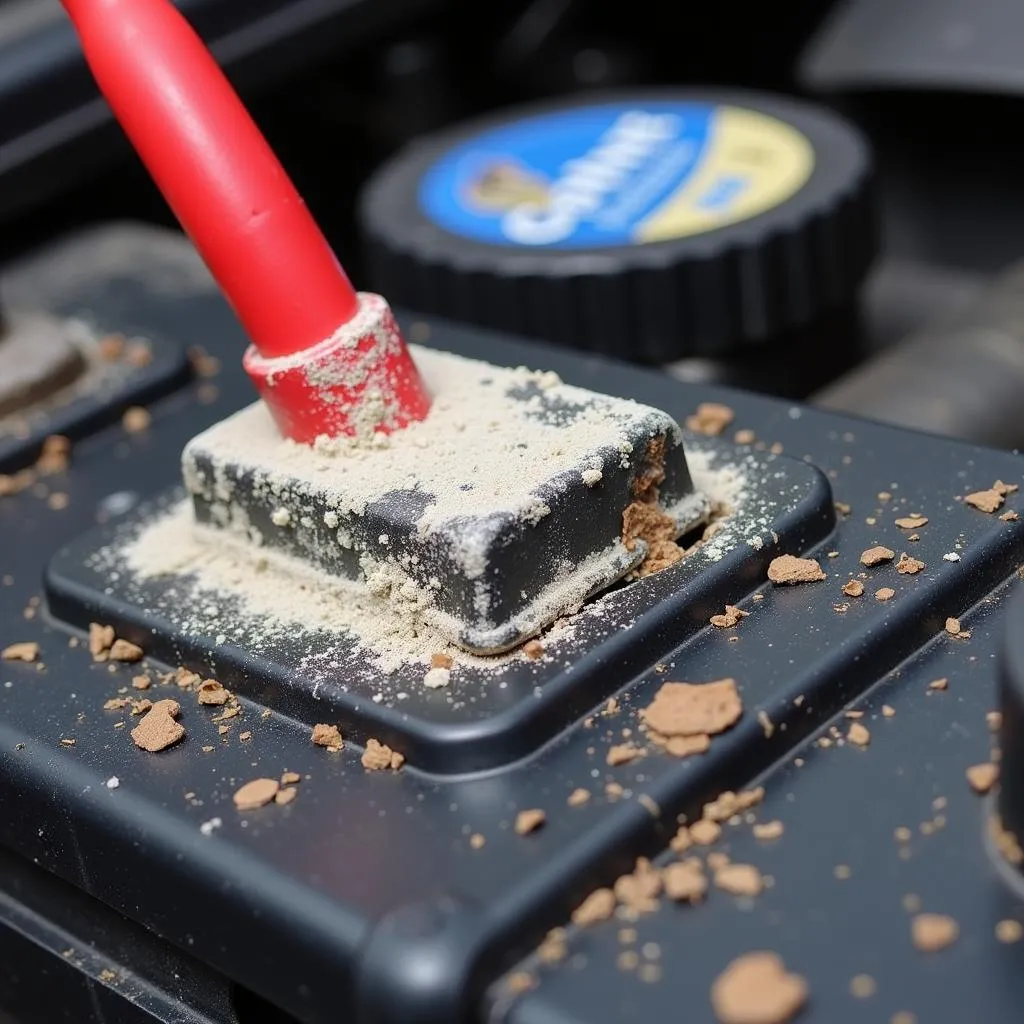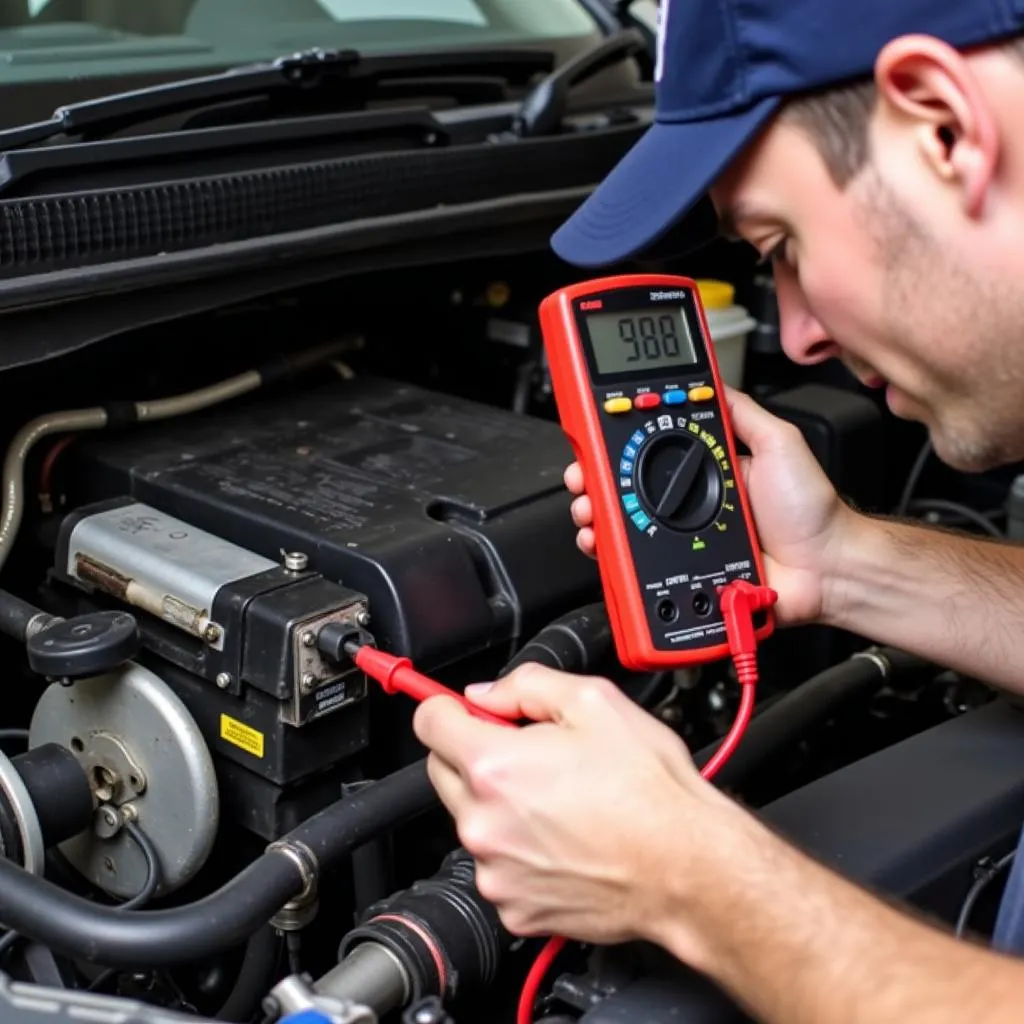A car that has power but won’t crank can be a frustrating situation. You hear the radio and see the lights working, but turning the key results in nothing but silence. This means your car’s electrical system is at least partially functional, but the starting system isn’t engaging. There are several reasons why your car might exhibit these symptoms, ranging from a simple dead battery to a more complex issue like a faulty starter motor.
Common Reasons Your Car Has Power But Won’t Crank
Here are some of the most common culprits behind a car with power but no cranking action:
-
Dead Battery: Even though your car’s lights and radio might be working, the battery might not have enough juice to power the starter motor. This is especially true if you’ve left lights or accessories on for an extended period.
-
Faulty Starter Motor: The starter motor is responsible for engaging the engine’s flywheel and turning it over to start the combustion process. If the starter motor is worn out or faulty, it might not have enough power to crank the engine, even if it’s receiving a signal.
-
Ignition Switch Problems: The ignition switch supplies power to the starter motor when you turn the key. A worn-out or malfunctioning ignition switch can prevent the signal from reaching the starter, resulting in a no-crank condition.
-
Corrosion or Loose Connections: Corrosion on battery terminals or loose connections within the starting circuit can interrupt the flow of electricity, preventing the starter from engaging.
-
Neutral Safety Switch Malfunction: The neutral safety switch ensures that the car only starts in “Park” or “Neutral.” If this switch malfunctions, it can prevent the starter from engaging even if the transmission is in the correct position.
 Car Battery Terminals Corrosion
Car Battery Terminals Corrosion
Troubleshooting a Car That Has Power But Won’t Crank
Here are some steps you can take to diagnose the problem:
-
Check the Battery: Begin by checking your battery voltage using a multimeter. A fully charged battery should read around 12.6 volts. If the voltage is significantly lower, jump-starting your car with a set of jumper cables from another vehicle can help determine if the battery is the culprit. If the car starts after a jump-start, your battery likely needs to be replaced. If you’re experiencing issues with your battery, you might want to explore resources on why your car not starting but lights on.
-
Inspect the Starter Motor: If the battery is not the issue, the next step is to inspect the starter motor. You can do this by tapping it gently with a hammer or a long object while a helper attempts to start the car. If the starter motor is sticking, the tapping might free it up and allow the engine to crank. However, if this doesn’t work or if you hear unusual noises from the starter, it’s likely faulty and needs replacement.
-
Test the Ignition Switch: You can test the ignition switch by turning the key to the “Start” position and listening for a clicking sound. This clicking sound indicates that the starter relay is engaging. If you don’t hear the clicking sound, it could be a sign of a faulty ignition switch.
-
Check for Corrosion and Loose Connections: Inspect the battery terminals, starter connections, and other wiring in the starting circuit for any signs of corrosion or loose connections. Clean any corroded connections with a wire brush and tighten any loose connections.
-
Inspect the Neutral Safety Switch: If your car has an automatic transmission, check that the gear selector is firmly in “Park” or “Neutral.” Try moving the shifter back and forth a few times and then attempting to start the car again.
 Mechanic Testing Car Starter Motor
Mechanic Testing Car Starter Motor
When to Seek Professional Help
If you’ve tried these troubleshooting steps and your car still won’t crank, it’s best to seek the help of a qualified mechanic. They can use a dealer scanner to diagnose the problem more accurately and perform any necessary repairs.
Expert Insight
“A car that has power but won’t crank can be caused by several factors, but the most common culprit is a dead battery. However, it’s crucial to check other components like the starter motor and ignition switch before replacing the battery,” says John Smith, a certified master technician with over 20 years of experience. “Using a dealer scanner can significantly speed up the diagnosis process and help pinpoint the exact cause of the issue.”
Conclusion
Dealing with a car that has power but won’t crank can be frustrating, but by understanding the potential causes and following the troubleshooting steps outlined above, you can often pinpoint the problem and get your car back on the road. If you’re unsure about anything or the problem persists, it’s always best to consult a qualified mechanic to avoid further damage to your vehicle. If your car is exhibiting similar issues but is cranking without starting, you may find our article on “car cranks but wont turn over” helpful.
FAQs
Q: Can a bad alternator cause a car to not crank?
A: While a bad alternator can eventually drain your battery, it won’t directly prevent your car from cranking. The battery is solely responsible for providing power to the starter motor.
Q: Can a blown fuse prevent a car from cranking?
A: Yes, a blown fuse in the starting circuit can prevent the starter motor from receiving power, resulting in a no-crank condition. Check your car’s fuse box for any blown fuses related to the starting system.
Q: What is the difference between cranking and turning over?
A: Cranking refers to the sound and action of the starter motor engaging the engine’s flywheel. Turning over refers to the engine rotating and beginning the combustion process. If your car is cranking but not turning over, it means the starter is working but the engine is not firing up.
You might also be interested in:
Need further assistance? Contact our team via WhatsApp: +1(641)206-8880, Email: [email protected] or visit us at 276 Reock St, City of Orange, NJ 07050, United States. We’re available 24/7 to help you get back on the road.